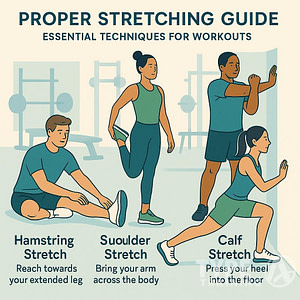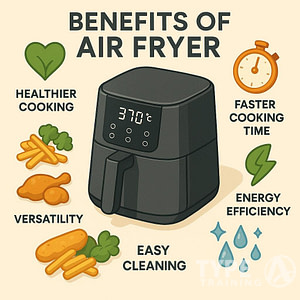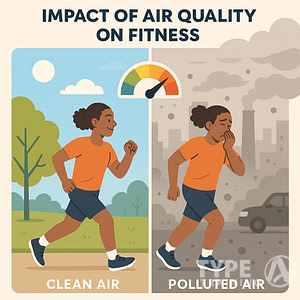Is snoring shaking the foundation of your relationship? Sleep apnea might be the culprit.
Treating sleep apnea can significantly enhance relationship satisfaction by improving the quality of sleep for both partners.
When you’re well-rested, you’re more likely to engage positively with your partner, building a stronger, healthier relationship.
Popular posts:
Sleep apnea and other sleep disorders don’t just affect the person suffering from them; they impact the entire household.
Untreated, they can lead to frustration and sleep disruptions for partners, often resulting in separate sleeping arrangements. This “sleep divorce” can erode intimacy and emotional connection over time.
Using therapies like PAP therapy can be a game-changer for couples dealing with these issues.
By keeping the airways open with mild air pressure, these treatments can reduce snoring and disturbance, essentially saving marriages.
With regular use of a CPAP machine, many couples find their bonds strengthened and their overall home environment more harmonious. Explore more about how sleep apnea treatment can enhance your relationship.
Understanding Sleep Apnea and Its Impact on Relationships
Sleep apnea, particularly obstructive sleep apnea, is a condition that can have profound effects on health and relationships.
By affecting sleep quality and causing symptoms such as loud snoring, it can strain partnerships and reduce relationship satisfaction.
The Basics of Sleep Apnea
Sleep apnea is a disorder characterized by repeated interruptions in breathing during sleep.
Obstructive sleep apnea (OSA) is the most common form, where throat muscles intermittently relax and block the airway. These interruptions lead to fragmented sleep and decreased oxygen levels.
A classic symptom is loud and chronic snoring, often prompting partners to seek separate sleeping arrangements.
Sleep apnea can cause daytime fatigue, irritability, and difficulty concentrating, impacting daily life.
Positive airway pressure (PAP) therapy is a common treatment that keeps airways open, improving sleep quality.
Diagnosing and managing sleep apnea effectively is crucial for maintaining healthy sleep habits and overall well-being.
How Sleep Apnea Affects Relationships
The impact of sleep apnea extends beyond individual health, affecting relationship dynamics.
Chronic snoring and night disturbances can lead to “sleep divorces,” where partners choose to sleep separately for better rest. This can affect intimacy and the emotional connection between partners.
Relationship satisfaction often declines when sleep quality is compromised.
Fatigue and irritability from poor sleep may increase conflict and reduce patience with each other.
Effective treatment, such as PAP therapy, can significantly improve relationship dynamics by enhancing quality of life for both partners.
Improved sleep leads to better mood, energy levels, and communication, strengthening the partnership.
Encouraging h3 bed sharing post-treatment has been associated with greater relationship satisfaction and reduced conflict. It is vital to address sleep apnea not just for individual health, but for the health of the relationship.
Exploring Treatment Options for Sleep Apnea
Various treatment methods can effectively manage sleep apnea, catering to the specific needs of individuals.
They range from non-surgical options such as CPAP therapy to surgical interventions and lifestyle changes that help alleviate symptoms.
Non-Surgical Treatments
One of the most common non-surgical treatments for sleep apnea is PAP therapy, which includes using a CPAP or a BPAP machine.
CPAP devices deliver continuous positive airway pressure to keep your airway open during sleep. This method is especially effective for obstructive sleep apnea and is widely used by those in sleep medicine.
In addition to CPAP therapy, oral appliances can be used.
These devices are designed to keep the throat open by repositioning the jaw or tongue, improving airflow and reducing snoring.
Some individuals may also benefit from therapy focused on positioning changes during sleep, particularly for those who experience apnea primarily when lying on their back.
Couples-based treatment approaches are also gaining attention, aiming to improve compliance and sleep quality by addressing apnea with a holistic view on both partners in a relationship.
Surgical Treatments and Procedures
Surgical options are generally considered when non-surgical treatments are ineffective or not well-tolerated.
One approach is uvulopalatopharyngoplasty (UPPP), which involves removing soft tissue at the back of the throat to widen the airway.
In certain cases, Inspire therapy, which entails stimulating the hypoglossal nerve to keep the airway open, may be recommended for obstructive sleep apnea.
Other surgical procedures might involve addressing nasal obstructions or correcting structural abnormalities in the facial skeleton. These can significantly enhance airflow and reduce apnea events.
Weight-loss surgery could be a consideration if excess weight is a primary factor contributing to your condition.
The choice of surgery depends on your anatomical and medical situation, as assessed by a healthcare provider.
Lifestyle Changes and Home Remedies
Lifestyle modifications can complement other treatments and have long-lasting effects.
Maintaining a healthy weight is crucial, as excess weight contributes to airway obstruction.
Regular exercise can also improve respiratory strength and reduce symptoms.
Avoiding alcohol and sedatives before bedtime is important, as they can relax the throat muscles and worsen sleep apnea.
Sleeping on your side instead of your back may reduce apnea episodes.
Certain home remedies, such as using a humidifier or practicing throat exercises, can help lessen symptoms.
These strategies are typically recommended as part of a comprehensive treatment plan and should be discussed with a specialist to ensure they align with your needs.
The Role of Sleep Medicine Organizations
Organizations dedicated to sleep medicine play crucial roles in setting treatment standards and driving advancements in therapies for sleep apnea.
Their contributions ensure patients receive effective care and remain informed about the latest innovations in treatment options.
Standards and Guidelines for Treatment
The American Academy of Sleep Medicine (AASM) is instrumental in establishing standardized treatment protocols for sleep apnea.
You may find their guidelines and recommendations influencing how healthcare providers assess and treat sleep disorders.
These standards ensure patient safety, efficacy of treatment, and consistency across different healthcare settings.
The Associated Professional Sleep Societies (APSS) collaborates with other organizations to continuously update these guidelines based on the latest research.
This partnership helps address emerging challenges and incorporate novel treatment methods.
Such collaboration enhances the quality of care you receive, by keeping the healthcare community aligned on best practices and new findings in sleep medicine.
Research and Advancements in Sleep Apnea Treatments
Significant advancements in sleep apnea treatments often originate from research spearheaded by organizations like the Sleep Foundation.
These entities fund studies, support clinical trials, and promote awareness of innovative treatments like CPAP alternatives.
Your understanding of these advancements can empower better choices regarding your treatment options.
For instance, new drug therapies such as AD109, developed by companies like Apnimed, are gaining attention and showing promise as alternatives for those not suited to traditional therapies.
The work of these organizations in the research realm directly contributes to expanding and refining therapeutic options available to those suffering from sleep apnea.
Assessing the Impact of CPAP Therapy on Marital Satisfaction
Understanding how CPAP therapy affects marital satisfaction is crucial for couples dealing with sleep apnea. Key aspects include the success rates of CPAP use and personal stories from those who have experienced its impact firsthand.
Success Rates and Statistics
Continuous Positive Airway Pressure (CPAP) therapy is often used to treat obstructive sleep apnea.
One study revealed that 72.4% of couples who previously slept apart started sharing a bed again post-treatment, indicating improved relationship satisfaction.
Research indicates that successful CPAP therapy can significantly enhance sleep efficiency, leading to healthier relationships.
Another study found 69% of patients noticed personal life improvements after treatment.
Impressively, 74% of their spouses acknowledged these positive changes.
Such statistics emphasize the potential of CPAP therapy to repair disrupted sleep patterns and strengthen marital bonds.
Personal Stories and Testimonials
Testimonials from couples provide an intimate view of how CPAP therapy changes relationships.
Many couples report a gradual but clear improvement in their quality of life and connection after adopting CPAP therapy.
For example, partners describe getting better sleep and feeling more rested, which may lead to reduced irritability and enhanced emotional connection.
These personal stories highlight not only the physical but also emotional benefits of CPAP. Restful nights contribute to a more understanding and supportive partnership.
While every couple’s experience is unique, the positive impact on both sleep and relationship quality is a common thread in many such accounts.
Long-Term Health and Relationship Benefits
Treating sleep apnea offers significant benefits for both health and personal relationships.
By improving sleep efficiency, you may experience reduced risks for various chronic diseases.
Furthermore, addressing sleep apnea can enrich your connections with loved ones, making your interactions more positive and fulfilling.
Improvement in Overall Health
Using CPAP therapy for obstructive sleep apnea can lead to critical health improvements.
Consistent use can help you achieve better sleep duration and efficiency.
Those with sleep apnea often face increased risks for conditions like obesity and high
Actigraphy studies have shown that improved sleep duration translates into better daily functioning.
This form of therapy can mitigate the effects of excessive daytime sleepiness and enhance your quality of life.
When such a core aspect like sleep is addressed, it sets the stage for addressing other health issues more effectively. Sleep apnea treatment is a cornerstone for leading a healthier life.
Strengthening of Relationships
Addressing sleep apnea does more than just improve health; it can also have a profound impact on your relationships.
The use of a CPAP machine leads to decreased conflicts and enhanced relationship satisfaction. Studies indicate that couples experience healthier dynamics with successful sleep apnea management.
Better sleep can lead to more energy and patience, enhancing your ability to interact positively with your partner.
The concerns associated with sleep apnea, like loud snoring, often burden relationships. Reducing these factors can help nurture more peaceful interactions, boosting the emotional connection between you and your loved ones.
This can fundamentally enhance the fabric of your relationship.
Frequently Asked Questions
Sleep apnea can significantly impact relationships, especially when left untreated. Addressing it with appropriate treatments not only improves individual health but also enhances marital satisfaction. Discover signs, effects, and available treatments for sleep apnea in the following sections.
What are the common signs that indicate someone might need sleep apnea treatment?
Common signs include loud snoring, gasping for air during sleep, and excessive daytime drowsiness.
If sleep is interrupted frequently throughout the night, it could be a sign of sleep apnea. Morning headaches and difficulty concentrating are additional indicators that might suggest seeking further evaluation from a healthcare professional.
How does untreated sleep apnea affect relationships or marital dynamics?
Untreated sleep apnea often leads to sleep disturbances for both partners. The individual with sleep apnea may experience poor sleep quality, resulting in irritability and fatigue.
The partner’s sleep could also be disrupted by the noise, causing tension and strain on the relationship. This can lead to misunderstandings and increased conflict.
Can you explain the recent findings on the correlation between sleep apnea treatment and improved marital satisfaction?
Recent findings highlight that consistent use of positive airway pressure (PAP) therapy can improve sleep quality and strengthen romantic relationships.
By alleviating symptoms like chronic snoring and ensuring better rest, couples often report enhanced communication and reduced friction at home. You can learn more detailed insights from the study at studyfinds.org.
What types of sleep apnea treatments are available and how do they differ?
Several treatments are available for sleep apnea, each catering to different severity levels.
Continuous Positive Airway Pressure (CPAP) devices are the most common. Recently, the FDA cleared oral appliances for severe sleep apnea, offering an alternative for some patients.
Other options include lifestyle changes, surgery, or innovative therapies like Inspire.
What steps should one take if they suspect their partner’s snoring is a symptom of sleep apnea?
If you suspect your partner’s snoring is linked to sleep apnea, encourage them to consult a healthcare professional.
A sleep study may be recommended to diagnose the condition. Open communication about health concerns and exploring treatment options together can assist in managing the condition effectively.
Are there lifestyle changes that can complement medical treatment for sleep apnea?
Lifestyle changes like weight management, quitting smoking, and reducing alcohol consumption can significantly aid sleep apnea treatment.
Adopting a regular sleep schedule and using nasal decongestants may also help.
Combine these with medical treatments for a comprehensive approach to managing sleep apnea symptoms effectively.













